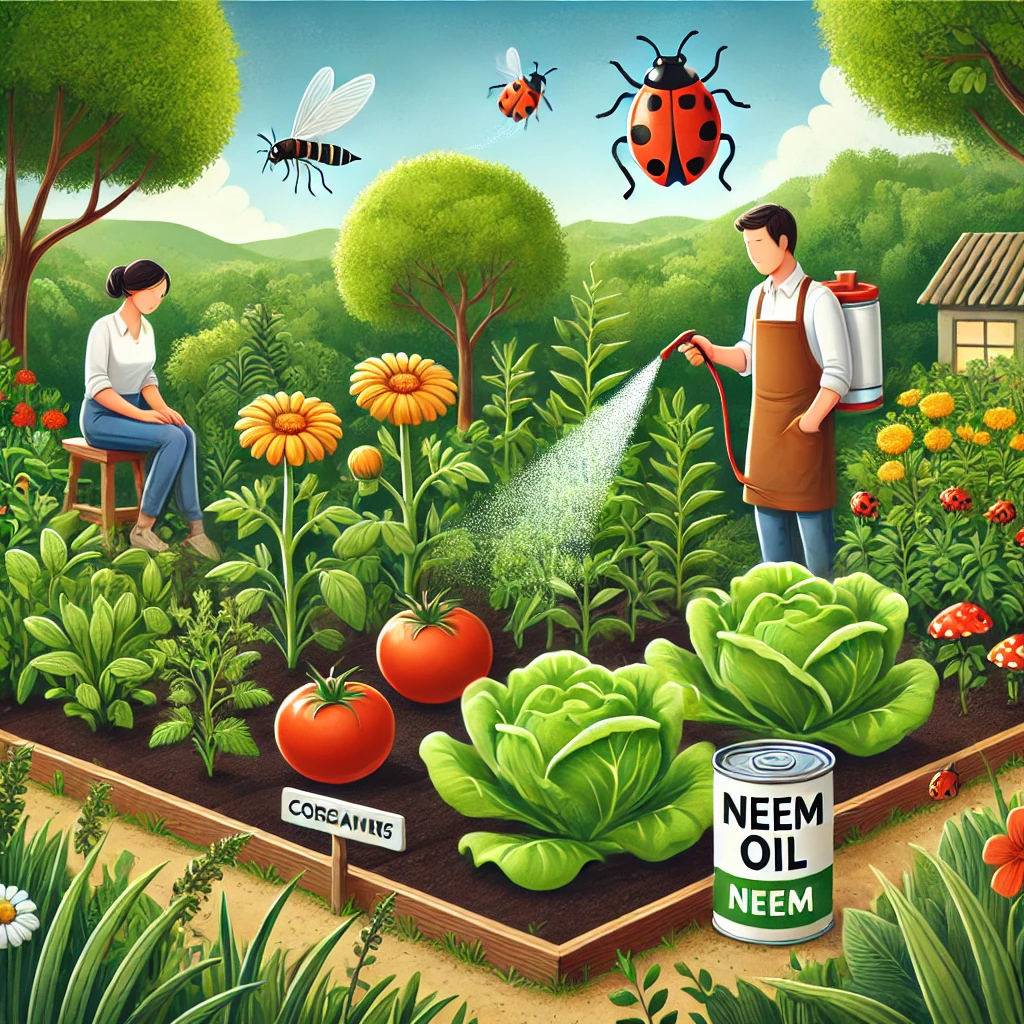Using Beneficial Insects for Natural Pest Control
Benefit insect introduction is one of the best eco-friendly methods for controlling pests in your garden. Aphids, caterpillars, and spider mites are among the common garden pests that are consumed by predatory insects like ladybugs, lacewings, and predatory mites. Without the use of chemical pesticides, these insects aid in the preservation of a natural equilibrium. Planting flowers that attract beneficial insects, like fennel, daisies, or marigolds, is a simple way to encourage their presence. Once established, they put forth endless effort to control dangerous pests, safeguarding your plants and fostering a thriving ecosystem in your organic garden.
Companion Planting to Deter Pests
An additional successful method for eco-friendly pest control is companion planting. While some plants naturally draw beneficial insects, others naturally repel pests. For instance, marigolds are known to ward off nematodes and aphids, while basil keeps flies and mosquitoes away. You can deter pests by planting onions, chives, or garlic around your vegetables. These companion plants provide a barrier that keeps harmful insects from getting to your crops through their scent and chemicals. Planting these natural protectors in your garden will help you grow more plants and lessen your need for synthetic pesticides.
Organic Pest Sprays and Deterrents
Organic pesticides, like neem oil and insecticidal soap, offer a sustainable solution to pest control. Neem oil is an effective tool for organic gardeners because it interferes with the life cycle of pests like aphids, mites, and whiteflies without endangering beneficial insects. Soft-bodied insects’ outer layer is broken down by insecticidal soaps, leading to the insects’ dehydration and eventual death. Both solutions naturally biodegrade, leaving no toxic residues behind and are safe for people, pets, and plants. By using these natural remedies on a regular basis, you can keep your garden healthy and avoid infestations.
Maintaining a Healthy Garden Environment
Pest issues are less common in a healthy garden. You can fortify your plants’ natural defenses against pests by adding compost to your soil and using appropriate watering practices. Mulching the area around plants helps control temperature, hold onto moisture, and keep pest eggs from hatching in the ground. Eliminating withered or dead plant matter also lessens the amount of places where pests can breed. By cultivating a range of plants, you can promote biodiversity in your garden and establish a balanced ecosystem that makes pests less likely to take over. By taking these precautions, you can be sure that your garden will continue to be a healthy, pest-resistant area.
